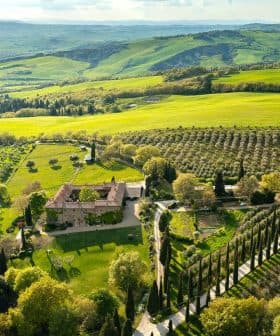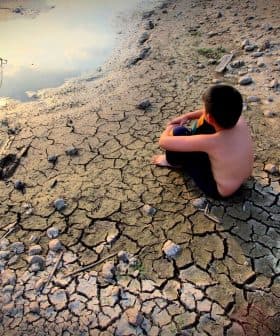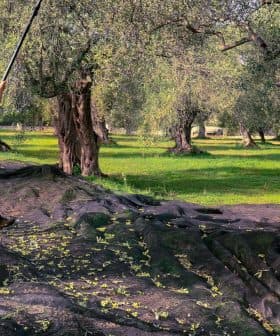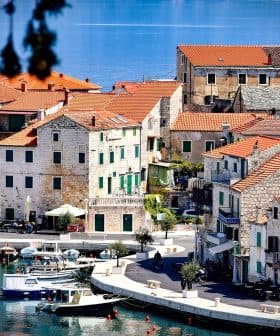Tradition Breeds Better Nutrition in Italian Children
To improve the eating habits of Italian kids, sommelier Nicola Di Noia offers seminars for children on the secrets of extra virgin olive oil.
 school
schoolIn Italy, experts are concerned about the negative impact of advertising on children’s eating habits, fearing that rich culinary traditions may be overshadowed by foreign processed foods. Olive oil sommelier Nicola Di Noia is working to educate children about the importance of quality olive oil through tastings, aiming to help them make better food choices and appreciate healthy options early on. Through these events, children are exposed to the scents and tastes of natural products, encouraging them to choose quality foods and reject unhealthy snacks influenced by globalization and advertising.
A recent article in Italian newspaper La Stampa warned against the effects of advertising on the eating habits of children, citing an International Health Organization report. Experts unanimously agree that the food preferences of children have been going from bad to worse over the last few decades.
In Italy, a country known for its rich culinary heritage and exquisite produce, the greatest fear is that these traditions might eventually be submerged beneath the weight of media advertising for foreign, low-quality processed foods.
While some Italians may do little more than lament the likely demise of centuries of culinary tradition, Nicola Di Noia, an olive oil sommelier and agronomist at the Italian farmers’ association, Coldiretti, has decided to do something about it.
Di Noia’s work is a testimony to his passion for olive oil and he has begun to hold instructional tastings with children as young as 4 years old.
During a recent event, one-third of the attendees were the children of olive oil and wine enthusiasts, Di Noia said, but the rest were the sons and daughters of ordinary Italians, perhaps looking for a way to share their rich culinary heritage with the younger generation.
As many parents simply give up and often feed their children whatever they want, Di Noia is trying to help kids discover a whole new world of flavors and scents, and starting them on the road to better nourishment.
The question is, can young children be taught to distinguish low-quality olive oil from antioxidant-rich extra virgin olive oil? And how can they benefit from that knowledge in the long term? Di Noia shared details of his unique experience with Olive Oil Times.
OOT: Why did you start out with the olive oil tastings for kids?
Di Noia: Children are our future, it is important that they understand immediately that eating properly is essential for their lives. Proper education about nutrition should be a core subject in schools. If children learn to distinguish good food from bad, they will surely live a better life. Extra virgin olive oil is essential for a proper nutrition. Learning to recognize qualityextra virgin olive oil oil is easy, and it can also be fun. Children are always ready to face new experiences, they lack the constraints and preconceptions that often burden adults. If they learn from a young age how to use their sense of smell and taste, they will be able to choose better food throughout their lives.
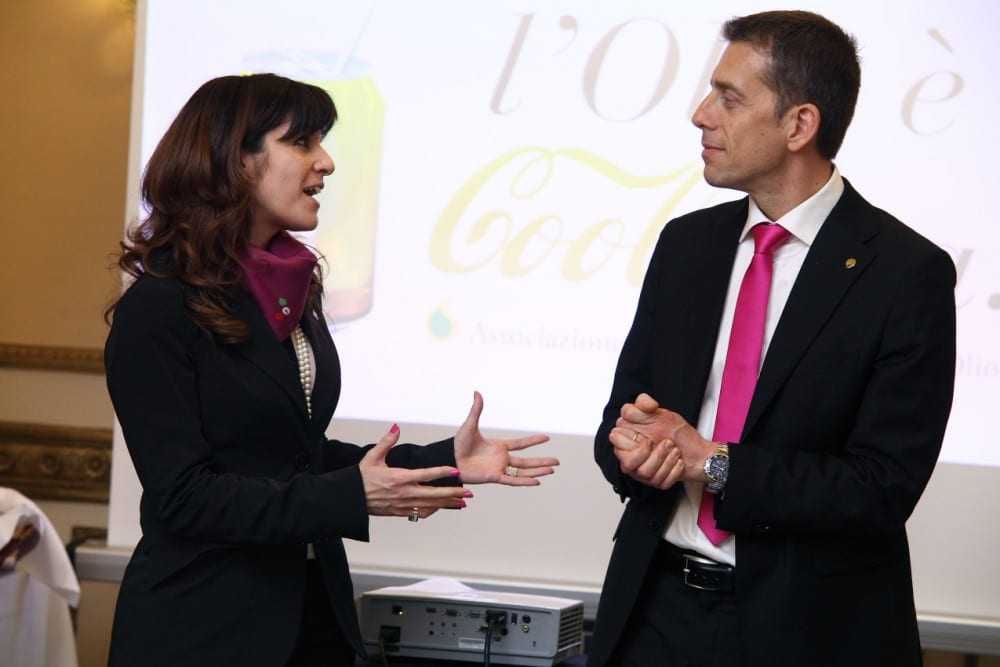
Maria Antonietta Pioppa with Nicola Di Noia (Italian Sommelier Foundation)
OOT: How was your first experience tasting with children?
Di Noia: It was exciting. I tried it with a small group of children, who also included my own children, and their responses were enthusiastic and full of joy. I was encouraged by this, and we started doing the first tastings in schools, and then we expanded to different locations, but we always made a point of creating a welcoming and relaxing atmosphere. We made the children feel at ease, so they could focus on olfactory recognition activities and the tasting of the oils.
OOT: What do you want to achieve with these events?
Di Noia: I wish to spread the culture of quality extra virgin olive oil, and teach children that olive oils are not all alike. Raising awareness in children is also a way to rapidly reach their parents. When kids learn that recognizing quality extra virgin olive oil is essential for their health, parents become aware of it too. As a result, parents are more willing to search for quality oils for the good of their children, who now have the ability to appreciate them. Oils rich in polyphenols and antioxidants can be recognized through sensory and scent analysis. They smell like cut grass, tomato, almond, and they reveal hints of bitter and spicy flavors when tasted. It is important to know these things, and it’s never too early or too late to learn.
OOT: What kind of specific responses do you get from the kids? Do they enjoy the events?
Di Noia: For them, it is a lot of fun. They feel like they are playing a game. They not only learn how olive oil is produced and stored, but they also rediscover their senses, especially smell and taste. During the tastings, children also have the opportunity to smell natural products, such as grass, artichokes, and tomatoes. The idea is to familiarize them with the scents of these products, so that they can rediscover them in oil. The sessions are never too theoretical. They combine knowledge with games. It is very important to make them interact, to get them to talk and judge foul smells, because they should also be able to tell when an oil is of poor quality.
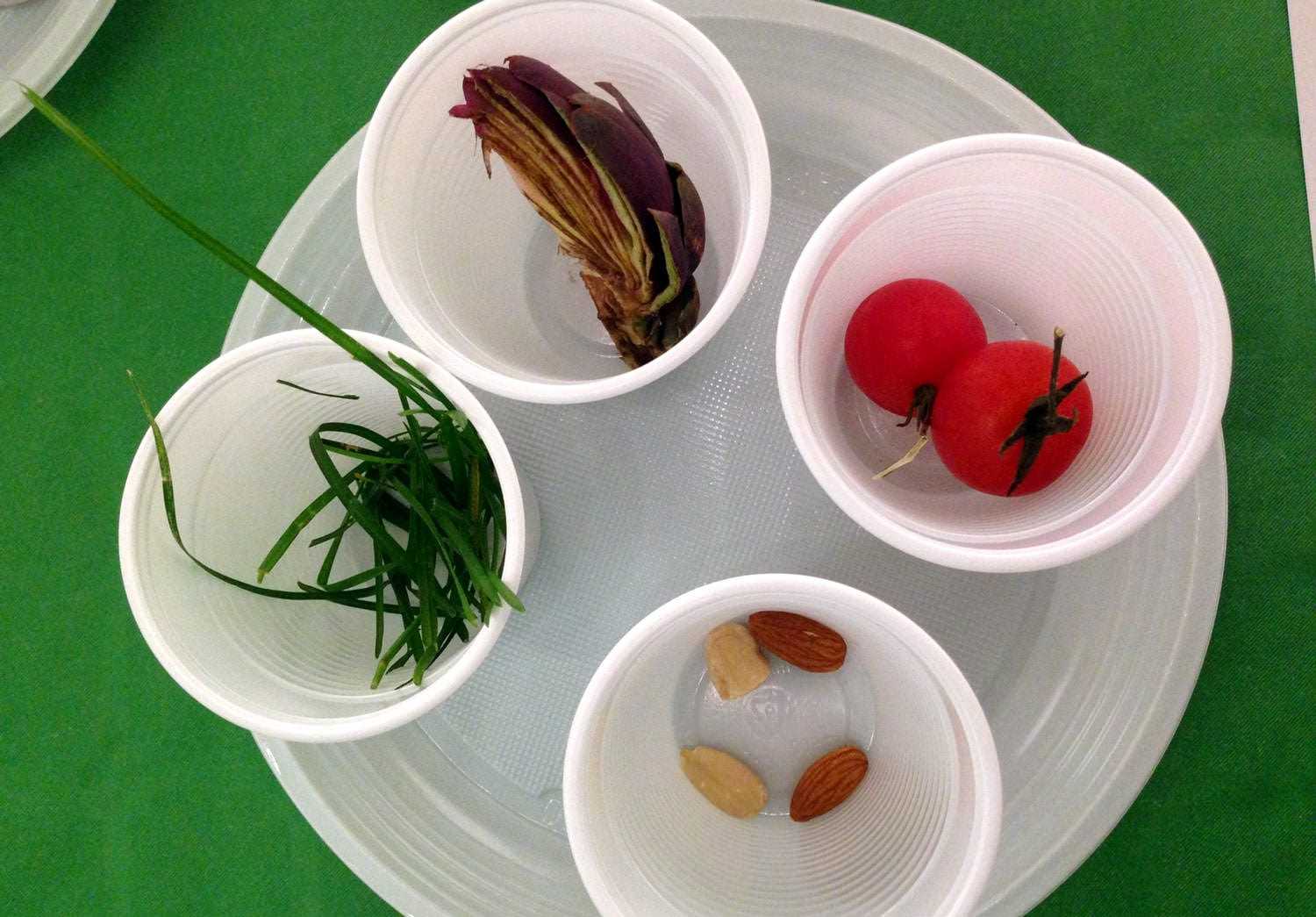
Nicola Di Noia
OOT: How has globalization changed the diet of Italian children?
Di Noia: Some modern eating patterns are unfortunately spreading an inappropriate diet. Children are eating more and more snacks, which are very rich in sugar, inexpensive, and readily available, but they also damage their health. Advertising has changed our lifestyle and eating habits in a decisive manner, especially for children. Adults must help them make better choices, because it is too late later in life to reverse the effects of a poor nutrition.
Coldiretti, with the aid of the Campagna Amica Foundation, is dedicated to helping families make informed decisions about food, favoring local Italian produce, and highlighting the need to consume seasonal products. Children must learn to consume more fruits and vegetables and to prefer products made with whole grain or unrefined flours.
Thanks to its scents and sensory characteristics, extra virgin olive oil can steer children towards foods that do not often attract them, such as vital legumes. Qualityextra virgin olive oil oil is a fruit juice with strong antioxidant powers. We should bring back the tradition of the old times, when instead of industrial products, children used to eat bread and olive oil as a snack.
OOT: What was the most unexpected response you ever got from a child?
Di Noia: After one of our tastings, a little girl went back in school and taught the whole lesson to her classmates, leaving everyone speechless, including the teacher!


